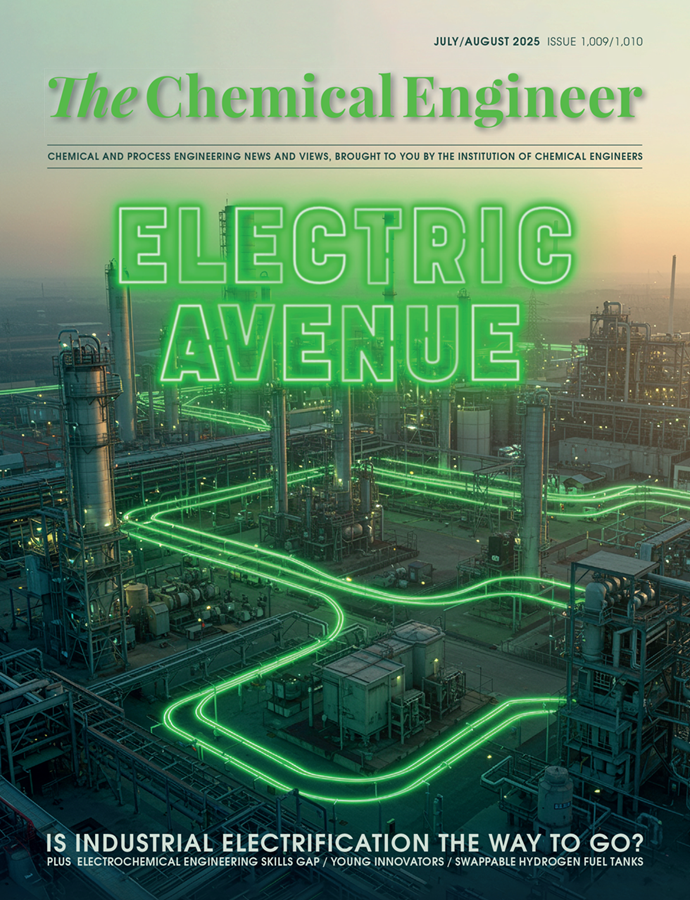Korean partners plan major export of ammonia from Australia

THREE of South Korea’s industrial conglomerates have joined forces to develop a supply chain to export more than 1m t/y of green ammonia from Australia to South Korea by 2032.
South Korea’s SK Gas, Korea Zinc, Hanwha Impact and Australia-based Ark Energy have signed a memorandum of understanding and formed a partnership called the Han-Ho H2 consortium. The Australian Government is pushing for the country to become a major producer and exporter of green hydrogen which can be produced using electrolysis powered by wind and solar power. This hydrogen can be combined with nitrogen from the air to produce liquid ammonia which has a higher volumetric energy density than hydrogen and is easier to store and transport. The ammonia can be used directly as a fuel for power generation and shipping and a feedstock for fertilisers. It can also be cracked back into hydrogen gas.
South Korea looks like an ideal customer for Australian hydrogen given it is already the third largest importer of ammonia in the world and its Government has committed to co-fire green ammonia in the country’s coal and gas-fired power plants in order to reduce emissions.
The deal was signed at Queensland Government headquarters in Brisbane. The state is set to be home to two projects being developed by the consortium leader Ark Energy. It plans to build a 1 MW PEM electrolyser at the Sun Metals Zinc refinery in Townsville. The project is called SunHQ H2 Hub and will use solar power to produce green hydrogen for trucks, displacing the use of diesel. The second project is an A$7.5bn project called the Collinsville Green Energy Hub that will install 3 GW of renewable energy capacity. Ark’s parent company Korea Zinc has set a target to power all its refining operations including the Sun Metals zinc refinery with clean power by 2050, and has agreed to buy ammonia produced by the consortium.
Hanwha Impact, whose business interests include petrochemicals, solar cell production and financial services, will also purchase ammonia produced by the consortium and will help with efforts on ammonia cracking and converting gas turbines to hydrogen-ready turbines. SK Gas will also buy ammonia and contribute to export and import terminal infrastructure, and shipping.
Queensland Premier Annastacia Palaszczuk said: “The world’s largest zinc producer Korea Zinc is a longstanding important contributor to our regional economy, and through the Sun Metals Corporation, is the largest private sector employer in North Queensland. Now, its subsidiary Ark Energy is not only helping Korea Zinc to decarbonise and produce green zinc – it’s transforming North Queensland into a hydrogen powerhouse.
“This MOU signals their intention to develop future green hydrogen and ammonia opportunities in North Queensland which means more local jobs and more investment.”
Ark Energy CEO, Daniel Kim, said: “Our partners and our parent company are major players in Korea’s hydrogen economy and have a forecast demand for more than 2m t of green ammonia per annum from 2030.”
The partners expect to sign a heads of agreement by the end of the year.
In 2019, the Queensland Government published a hydrogen strategy setting out its ambitions to become the country’s leading producer and exporter of green hydrogen. At a national level, Federal administrations have also pushed for the country to become a major global player with funding given to develop eight hydrogen hubs across Australia.
Recent Editions
Catch up on the latest news, views and jobs from The Chemical Engineer. Below are the four latest issues. View a wider selection of the archive from within the Magazine section of this site.




